Harnessing Artificial Intelligence for Social Equity and Sustainable Development
The G20 Side Event will bring a multissetorial vision of addressing the challenges posed by the uneven global distribution of AI-related tangible and intangible infrastructure and resources, providing governments with the necessary capacities and tools. The event is an initiative of the Digital Economy Working Group.
See the full seminar
About
Brazil will host the G20 in 2024 and one of the focuses of the Digital Economy Working Group is “Artificial Intelligence for Sustainable Development and Reduction of Inequality”, to address the social and political impacts of the advancement of digital technologies.
The G20 Side Event on this topic will discuss challenges arising from the uneven global distribution of AI assets and infrastructure and potential solutions to equip governments and relevant stakeholders, including the private sector and civil society, with the capabilities and tools necessary to face such challenges.
Infrastructure is the backbone of AI development. However, significant disparities between countries persist, often reflecting the broader digital divide that disproportionately affects countries in the Global South. It is important to explore the complex challenges of developing robust AI infrastructure, including access to high-speed internet, computational resources, and data storage capabilities. The discussions will center around innovative solutions to bridge these gaps, such as international partnerships, investment in local AI ecosystems, and policies to foster technology transfer. The goal is to ensure that G20 countries, regardless of their current infrastructure, can participate in and benefit from the advancements in AI.
The effectiveness of AI hinges not just on the technology itself but also on the expertise of those who develop and manage it. The critical need for skilled human resources in AI will be tackled, including the unique challenges faced by countries in the Global South. Issues such as brain drain, limited access to quality education and training programs, and the need for collaborative research initiatives will be highlighted. Potential solutions could include the development of global exchange programs, online learning platforms tailored to AI education, and funding for research centers dedicated to AI in developing countries.
Artificial Intelligence (AI) technologies, especially advanced systems such as generative and interactive AI, offer promising opportunities while posing significant challenges. On the one hand, they can promote innovation and progress. On the other hand, they can pose substantial challenges to economies and societies. These challenges include the need for robust ethical frameworks, the risk of job displacement due to automation, concerns about data privacy and security, and the potential for worsening socioeconomic disparities. Carefully navigating these challenges is essential to harnessing AI’s full potential while minimizing its adverse impacts. The recently adopted UN General Assembly Plenary Resolution “Seizing the Opportunities of Safe, Secure and Trustworthy Artificial Intelligence Systems for Sustainable Development” reflects global consensus on the promise of AI for sustainable development while managing the risks.
Without ethical development, deployment, and use of the principles of human rights, dignity, and fundamental freedoms (UNESCO Recommendation on the Ethics of Artificial Intelligence), AI risks exacerbating existing social divisions and creating new ones.
By addressing these critical areas, the seminar aims to highlight the challenges and pave the way for inclusive, equitable, and sustainable solutions. For G20 delegates, this represents a unique opportunity to lead by example, leveraging their collective influence to ensure that the future shaped by AI is beneficial for all.

When:
April 17th, Wednesday, April 17th, from 8:30am to 5:00pm
Where:
Auditorium Wladimir Murtinho - Itamaraty, Ministry of Foreign Affairs, Brasília, Brazil
Format and structure:
The seminar will be held in person, with simultaneous translation.
Wednesday, April 17th, from 8:30 am to 5 pm: thematic panels, open event due to registration.
Goals:
To bring together different perspectives on challenges arising from the uneven global distribution of AI assets and infrastructure.
To provide a space for dialogue to promote a shared understanding and a collaborative approach among stakeholders, guiding AI innovation towards beneficial and responsible results, which can impact actions by governments, multilateral organizations, civil society, the business sector, and the scientific community.
To shed light on key trends, identify existing gaps, and explore potential synergies to leverage AI for inclusive purposes and as a tool to combat poverty, which includes leveraging AI for innovative solutions in critical areas such as healthcare, education, food security, job creation, income generation and economic growth.
Public:
“Harnessing Artificial Intelligence for Social Equity and Sustainable Development” will be a multistakeholder, open, and global event, not restricted to G-20 members (due to registration).
Chair:
Ministry Luciana Santos, Ministry of State of Science, Technology and Innovation of Brazil
Speakers
Mr. Adeboye Adegoke
Senior Manager of Grants and Programs Strategy, Paradigm Initiative

Adeboye is a leading African digital rights advocate with massive expertise and skills in digital policy interventions. He leads programs strategy at Pan-African digital rights and inclusion organisation, Paradigm Initiative (PIN). He's led PIN’s work on Artificial Intelligence and Human Rights, Surveillance Accountability, Accountable Digital ID systems, Data Protection Advocacy, and Capacity-Building Programs.
Adeboye is a fellow of the African School on Internet Governance and a member of the Task Force on Human Rights and Artificial Intelligence (TFAIR) of the Freedom Online Coalition. He's coordinating T20's task force on the opportunities and challenges of the governance of Artificial Intelligence.
Mr. Nicolas Robinson Andrade
Director of Public Policies for OpenAI in Latin America

Previously, he worked at Zoom, Meta, National Democratic Institute (NDI), at the Canadian Embassy, and at the Rio 2016 Olympic and Paralympic Games. Nicolas has a degree in political science and international relations from the University of Bath (United Kingdom) and holds two master’s degrees from the University of Oxford in public policy and Latin American studies
Mr. Marcelo Lacerda
Director, Government Affairs & Public Policy, Google Brazil

With more than fifteen years of experience in Government Relations and Public Policy, Marcelo Lacerda has been leading Google’s Policy Team in Brazil and fostering the discussion of public policies related to the digital world. Before joining Google, he was a partner at Patri, a government relations consultancy in Brazil, and managed clients from a wide range of products: financial, chemical, plastic, agricultural and cosmetics. Previously, he had led Patri’s team for Infrastructure, Environment and Legislative Affairs. Marcelo holds a BA in economics and began his career in environmental science, more specifically at the Ministry of Environment. During his passage in the Ministry of Environmental he led and participated in several projects including the discussion and support policies for sustainable forest management and the Forest Concession Law.
Mr. Fernando de Rizzo
CEO of Tupy, B20 repres

Fernando de Rizzo holds specializations from CEAG FGV/SP and Stanford, a degree in Mechanical Engineering from Fundação Armando Alvares Penteado (FAAP) and an MBA in Marketing and Finance from Indiana University (Bloomington, IN/USA). Before becoming CEO of Tupy, Fernando Cestari de Rizzo held various leadership positions in the areas of Engineering, Strategic Planning, Marketing, Sales and Manufacturing. He has been with the company for more than 30 years, having already served as Vice President Director of the Company's Automotive Business Unit (2012 to 2018). He was Vice-President of Sales (2004 to 2012) and responsible for Strategic Planning (2000 and 2003).
Mr. Tarcízio Silva
Senior Tech Policy Fellow (Mozilla)
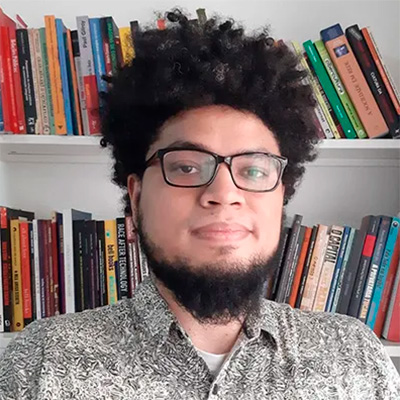
Tarcízio Silva is currently a Senior Tech Policy Fellow at the Mozilla Foundation, producing research and advocacy on transparency, accountability and anti-racism in Artificial Intelligence. He is also a curator at Desvelar, a collaborator at Tecla / Ação Educativa and Instituto Sumaúma. He holds a master's degree in Contemporary Communication and Culture from UFBA and a doctorate in Humanities and Social Sciences from UFABC, where he studies multisectoral controversies in the regulation of artificial intelligence. He is the author of the book Algorithmic Racism: artificial intelligence and discrimination in digital networks. In it, he studies the relationship between technology and race, racism, whiteness and blackness.
Mrs. Renata Wassermann
Associate Professor, University of São Paulo
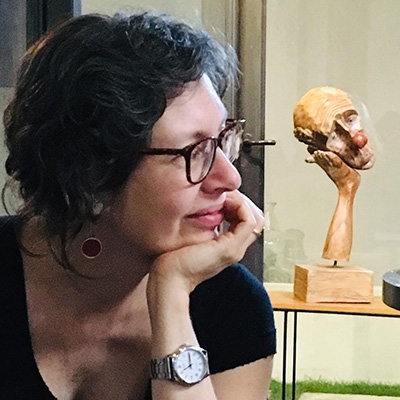
Renata Wassermann holds a PhD in Computer Science from the Institute for Logic, Language and Computation at the University of Amsterdam (1999). She is currently an associate professor in the Department of Computer Science at the Institute of Mathematics and Statistics at the University of São Paulo. Her research area is Artificial Intelligence, with an emphasis on Logic and Knowledge Representation. She works as a researcher at C4AI (Center for Artificial Intelligence at USP) and is one of the directors of Lawgorithm, a research association in AI and Law.
Mr. Lucas Brossi
Partner and Researcher at Bain
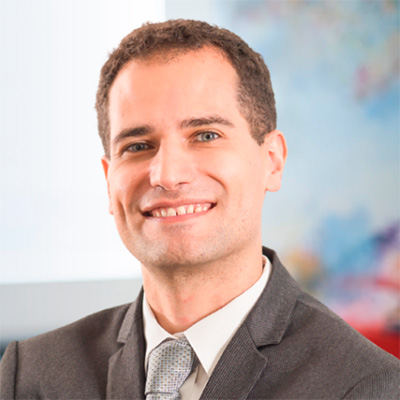
Lucas Brossi holds a degree in Business Administration from Fundação Getulio Vargas (Brazil) and a master's degree in Data Science from the University of California, Berkeley (USA). He is Head of Advanced Analytics at Bain & Company South America and is responsible for the Data Science, Machine Learning and Artificial Intelligence capabilities in the region. Lucas advises companies from different sectors on how to get the best returns from their Data & Analytics investments, helping to define the right data strategy. He also has extensive experience in leading Data Science projects.
Mr. Yi Zeng
Full Professor, Chinese Academy of Sciences
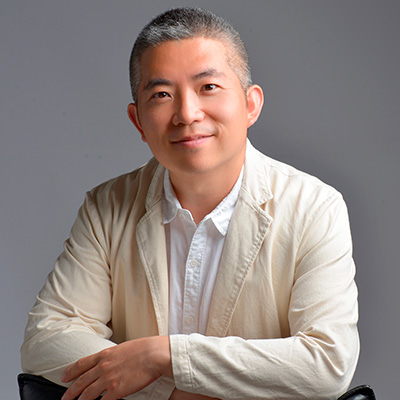
Yi ZENG is a Professor and Director at the Brain-inspired Cognitive Intelligence Lab, and the International Research Center for AI Ethics and Governance, both at the Institute of Automation, Chinese Academy of Sciences. He is the founding Director of Center for Long-term AI, and the AI for Sustainable Development Goals Cooperation Network. He is a board member for the National Governance Committee of Next Generation Artificial Intelligence, China. He is an expert of UN High-level Advisory Body on AI, an expert in the UNESCO Ad Hoc Expert Group on AI Ethics, the UNESCO High Level Expert Group on Implementation of AI Ethics Recommendation, and WHO Expert Group on AI Ethics/Governance for Health. His major research interests focus on Brain-inspired Artificial Intelligence, AI Ethics and Governance, AI Safety, and AI for Sustainable Development.
Mr. Bruno Bioni
Data Privacy Brasil, T20 representative

Bruno Bioni is the Founding-Director of the Data Privacy, an intersection space between a Research Association and a School, and Co-Lead Chair of the task-force on Inclusive Digital Transformation in the T20 - the think-thanks engagement group in G20. He holds a PhD in Commercial Law and Master Degree in Civil Law from the University of São Paulo Law School. He is a full member of the Brazilian National Data Protection Council/CNPD and of the Advisory Group on AI, Data Protection and Misinformation of the Brazilian Electoral Superior Court. Previously, he was nominated to the Federal Senate Commission of Jurists on Artificial Intelligence in 2022-2023, responsible for proposing an AI Draft Bill .
Mr. Edson Prestes
Full Professor, Federal University of Rio Grande do Sul
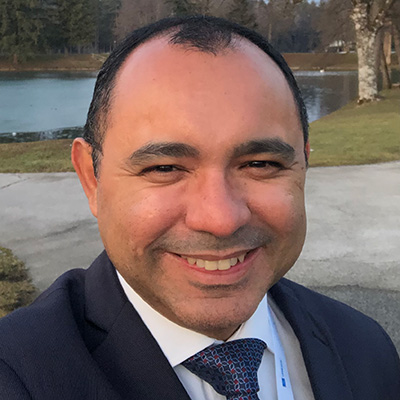
Edson Prestes is a Full Professor at the Informatics Institute of the Federal University of Rio Grande do Sul. Throughout his career, he has worked on initiatives related to Robotics, Ethics, Standardization, Artificial Intelligence and Humanitarian Activities in Academia, Industry and Multilateral Organizations. Among the highlights, Edson is Chair of the IEEE RAS/SA 7007 Standardization Group - Ontological Standard for Ethically Driven Robotics and Automation Systems; Member of the Global Council on the Future of Artificial Intelligence at the World Economic Forum; Member of the Global Commission on Responsible Artificial Intelligence in the Military Domain, an initiative of the Government of the Netherlands; Member of the High Level Panel on Digital Cooperation of the Secretary General of the United Nations; Member of the UNESCO Ad Hoc Expert Group (AHEG) that drew up the Recommendation on the Ethics of Artificial Intelligence.
Mrs. Cynthia Picolo
Executive Director of the Public Policy and Internet Laboratory – LAPIN

Lawyer, Bachelor of Laws from PUC-Campinas, LL.M. in Public International Law from Leiden University (Netherlands), specialist in Privacy and Data Protection and Artificial Intelligence. She also acts as the focal point of the GT-IA of the Coalition Rights on the Network (CDR) and co-facilitator of the GT-7 of the C20. He is a member of the EBIA working groups in the "Public Security" and "Legislation, Regulation and Ethical Use" axes and is a member of the Federal Government's Central Data Governance Committee (CCGD). She acted as a consultant for UNESCO in the process of applying the Readiness Assessment Methodology (RAM) for ethical and responsible AI in Brazil.
Mrs. Tainá Junquilho
Full Professor, IDP

Tainá Junquilho holds a PhD in Law with emphasis on Artificial Intelligence from the University of Brasilia. Lawyer and researcher. She teaches Law, Innovation and Technology and is a Collaborating Professor on the IDP master's program. She received a grant from FINATEC in the Research & Development Project for machine learning on judicial data from the general repercussions of the Federal Supreme Court - STF (Victor Project). Coordinator of LIA (AI Governance and Regulation Laboratory - IDP). Master in Law from the Federal University of Espírito Santo (UFES). She has experience in the area of Law, with an emphasis on Constitutional Law, Artificial Intelligence, General Data Protection Law, Business Law, General and Professional Ethics, Administrative Law and Civil Procedural Law.
Mrs. Renata Miell
Coordinator of the Brazilian Internet Steering Committee - CGI.br

Renata Mielli is a journalist. She holds a degree in Social Communication from Faculdade Cásper Líbero (2003). PhD candidate in the Communication Sciences Program at the School of Communication and Arts at the University of São Paulo (PPGCOM-ECA-USP). Special Advisor to the Minister of State for Science, Technology and Innovation. She is the coordinator of the Brazilian Internet Steering Committee (CGI.br). She was a member of the Content and Copyright Chamber of the Brazilian Internet Steering Committee (CGI.br) between 2022 and 2023. She was a member of the Universalization and Digital Inclusion Chamber of the Brazilian Internet Steering Committee (CGI.br) between 2013 and 2020. She was also General Coordinator of the National Forum for the Democratization of Communication (FNDC) between 2016-2020 and was a member of the FNDC Executive between 2011-2020.
Mrs. Renata Dwan
Office of the UN Secretary-General's Envoy on Technology

Dr. Renata Dwan is Special Adviser to the UN Secretary-General’s Envoy on Technology, with over 15 years’ experience in the United Nations.
As Director of the UN Institute for Disarmament Research (UNIDIR) she led initiatives on digital technology governance and arms control. Renata led UN-wide peace and security policy reforms, as Chief of Policy and Best Practices in the Department of Peace Operations and served with the UN in Afghanistan, DRC, Haiti, Mali and Syria.
Renata experience includes Deputy Director of Chatham House (UK) and Programme Director at Stockholm International Peace Research Institute (Sweden). She is an Irish national.
Mr. Tomas Lamanauskas
Deputy Secretary-General ITU

Tomas Lamanauskas is the Deputy Secretary-General of the International Telecommunication Union. In more than 20 years as a strategist focused on telecommunications and digital technologies, he has guided multicultural, multidisciplinary teams through challenging times and transformative changes. Mr. Lamanauskas holds a Sloan Master's Degree in Leadership and Strategy from the London Business School (UK), a Master's in Public Administration from the Harvard Kennedy School (US), a Master's in Telecommunications Regulation and Policy from the University of the West Indies (Trinidad and Tobago), and a Master of Laws from Vilnius University (Lithuania).
Program
WEDNESDAY, APRIL 17th
8:30 to 9h:30
9:30 to 10:00
Registration and Welcome Coffee
Opening Ceremony
Ambassador Luciano Mazza, Director of Science, Technology, and Intellectual Property of the Ministry of Foreign Affairs of Brazil, Chair of the G20 Digital Economy Working Group during the Brazilian Presidency
Dr. Marlova Jovchelovitch Noleto, Director and Brazilian Representative of UNESCO
Dr. Tomas Lamanauskas, Deputy Secretary-General of ITU
Dr. Henrique Miguel, Secretary of Science and Technology for Digital Transformation, Ministry of Science, Technology, and Innovation of Brazil
10:00 to 10:30
Special Keynote Speaker - Challenges for AI sovereignty
Mr. Virgílio Almeida, Professor Emeritus, Federal University of Minas Gerais, S20 representative
10:30 to 11:45
Panel 1 - Challenges in Overcoming Infrastructure Inequalities for AI Development
Infrastructure is the backbone of AI development. However, significant disparities between countries persist, often reflecting the broader digital divide that disproportionately affects countries in the Global South. This panel will explore the complex challenges associated with developing robust AI infrastructure, including access to high-speed internet, computational resources, and data storage capabilities. The discussions are expected to center around innovative solutions to help bridge these gaps, such as international partnerships, investment in local AI ecosystems, and policies to foster technology transfer. The goal is to ensure that G20 countries, regardless of their current infrastructure, can participate in and benefit from advancements in AI and the deployment of AI technologies.
Moderator: Mrs. Eliana Emediato, Brazil
Panelists:
Dra Tatiane Nogueira Rios, Professor at the Institute of Computing at the Federal University of Bahia
Dra. Fernanda Martins, Director of Research and Development at InternetLab
Mr. Fernando de Rizzo, CEO of Tupy, B20 representative
Mr. Tarcízio Silva, Senior Tech Policy Fellow (Mozilla)
11:45 to 13:00
Panel 2 - Challenges in AI research, development and human resource training
The efficiency and effectiveness of AI systems hinges not just on the technology itself but also on the expertise of those who develop and manage it. This panel will explore the critical need for skilled human resources in the field of AI, including the unique challenges faced by countries in the Global South. Issues such as brain drain, limited access to quality education and training programs, and the need for collaborative research initiatives will be highlighted. Potential solutions could include the development of global exchange programs, online learning platforms tailored to AI education, and funding for research centers dedicated to AI in developing countries.
Moderator: Mr. Rajesh Kumar, India
Panelists:
Mrs. Renata Wassermann, Full Professor, University of São Paulo
Mr. Lucas Brossi, Partner and Researcher at Bain
Mr. Yi Zeng, Full Professor, Chinese Academy of Sciences
Mr. Adeboye Adegoke, Senior Manager of Grants and Programs Strategy, Paradigm Initiative
13:00 to 14:00
14:00 to 15:15
Light Lunch
Panel 3 - Ethical challenges and impacts of AI use on society: Cultural, linguistic, social diversity, ethical and privacy challenges
This panel tackles the multifaceted effects of AI on society, addressing cultural, linguistic, and social diversity. It dissects the ethical dimensions of AI implementation and explores the intricate challenges to privacy. Delving into the transformative influence of AI on cultural identities, linguistic diversity, and social dynamics, the discussion navigates the responsible development and deployment of AI technologies. Ethical considerations raise questions about representativeness, discrimination, accountability, and transparency, among others. Privacy challenges in the digital era are scrutinized, highlighting the need for safeguards in the ethical use of personal information.
Moderator: Mr. Ali Mashishi, South Africa
Panelists:
Mr. Edson Prestes, Full Professor, Federal University of Rio Grande do Sul
Dra. Cynthia Picolo, Executive Director at LAPIN
Mrs. Tainá Junquilho, Full Professor, IDP
Dr. Nicolas Robinson Andrade, Director of Public Policies for Latin America, Open AI
15:15 to 16:30
Panel 4 - AI Governance: National and international challenges
As AI becomes increasingly integrated in various aspects of society, and within and across societies worldwide, its local and global governance emerges as a crucial matter. This panel will tackle the complex issue of AI governance, covering topics such as ethical AI development, cross-border data flows, and the balance between innovation and regulation. Panel experts will engage in debates about establishing international standards and norms to guarantee that AI development is ethical, secure, and beneficial to all. The discussion will also underscore the role of multilateral institutions and the importance of stakeholder engagement, including the private sector, academia, and civil society.
Moderator: Mrs. Mariagrazia Squicciarini, UNESCO
Panelists:
Mrs. Renata Mielli, Coordinator of the Brazilian Internet Steering Committee - CGI.br
Mrs. Renata Dwan, Office of the UN Secretary-General's Envoy on Technology
Mr. Bruno Bioni, Data Privacy Brasil, T20 representative
Mr. Tomas Lamanauskas, Deputy Secretary-General ITU
Dr. Marcelo Lacerda, Director of Government Affairs, Google
16:30 to 17:00
Closing Remarks
Ambassador Maria Laura da Rocha, General Secretary of Foreign Affairs, Brazil
Mrs. Luciana Santos, Minister of Science, Technology and Innovation of Brazil
Institutional Support

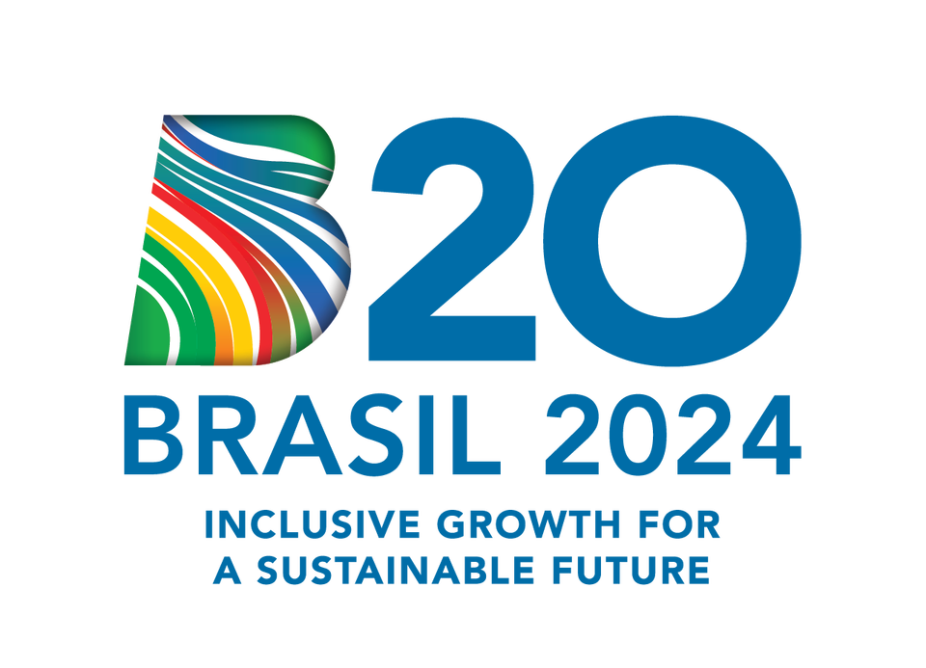
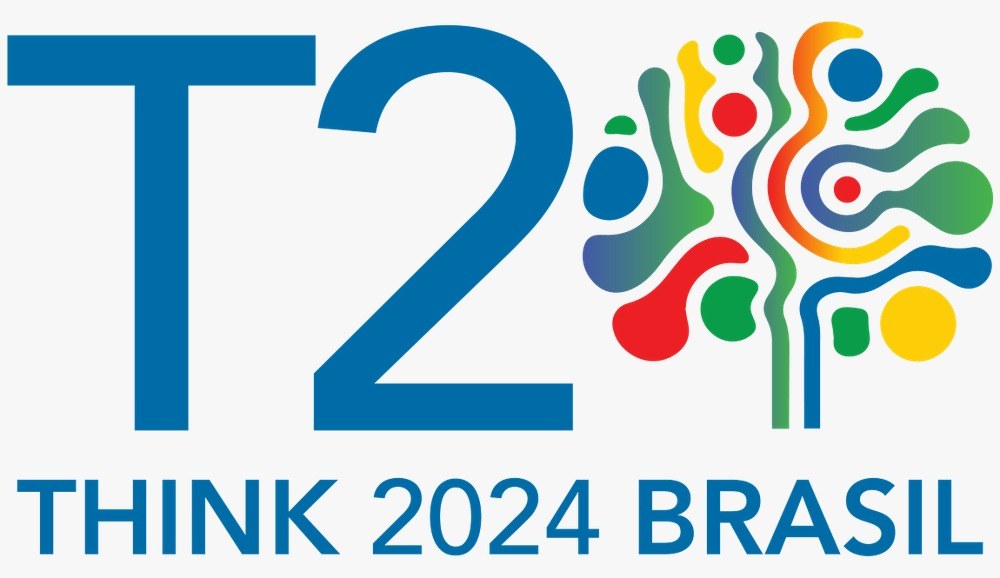
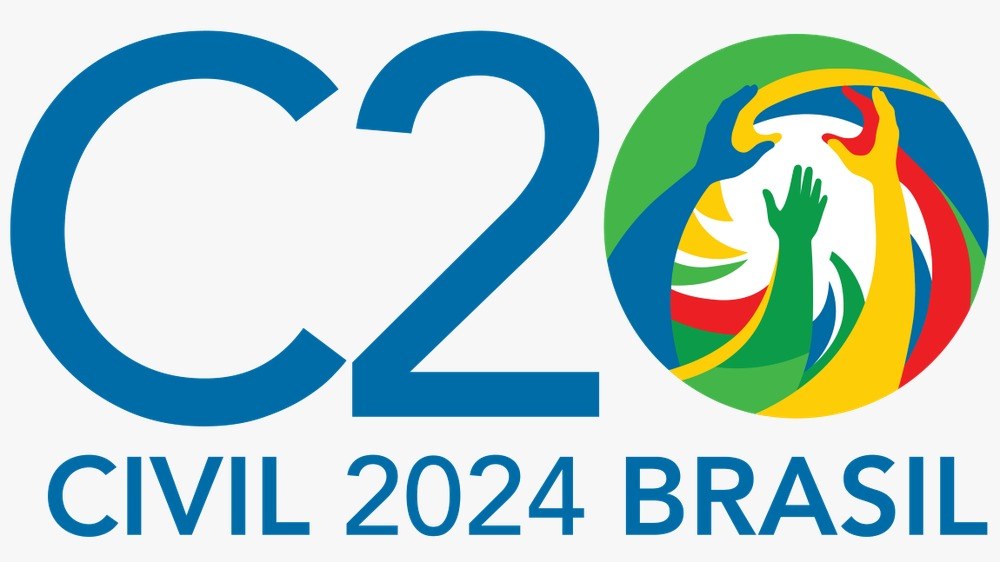

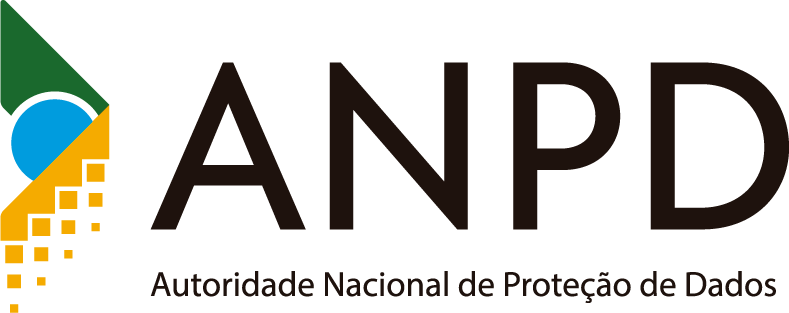
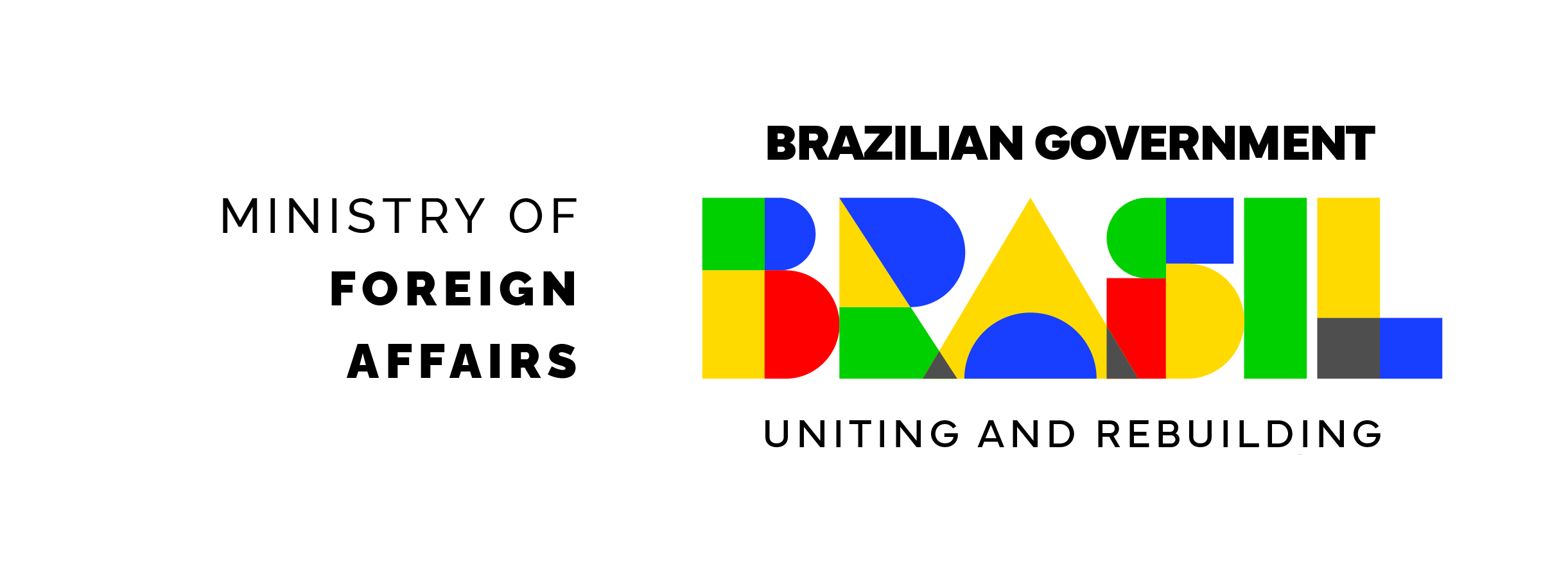
Realization
